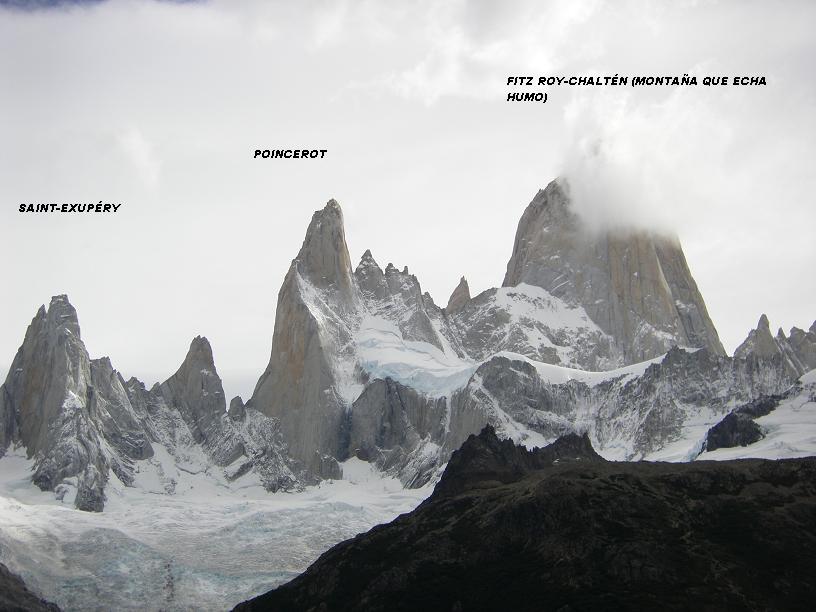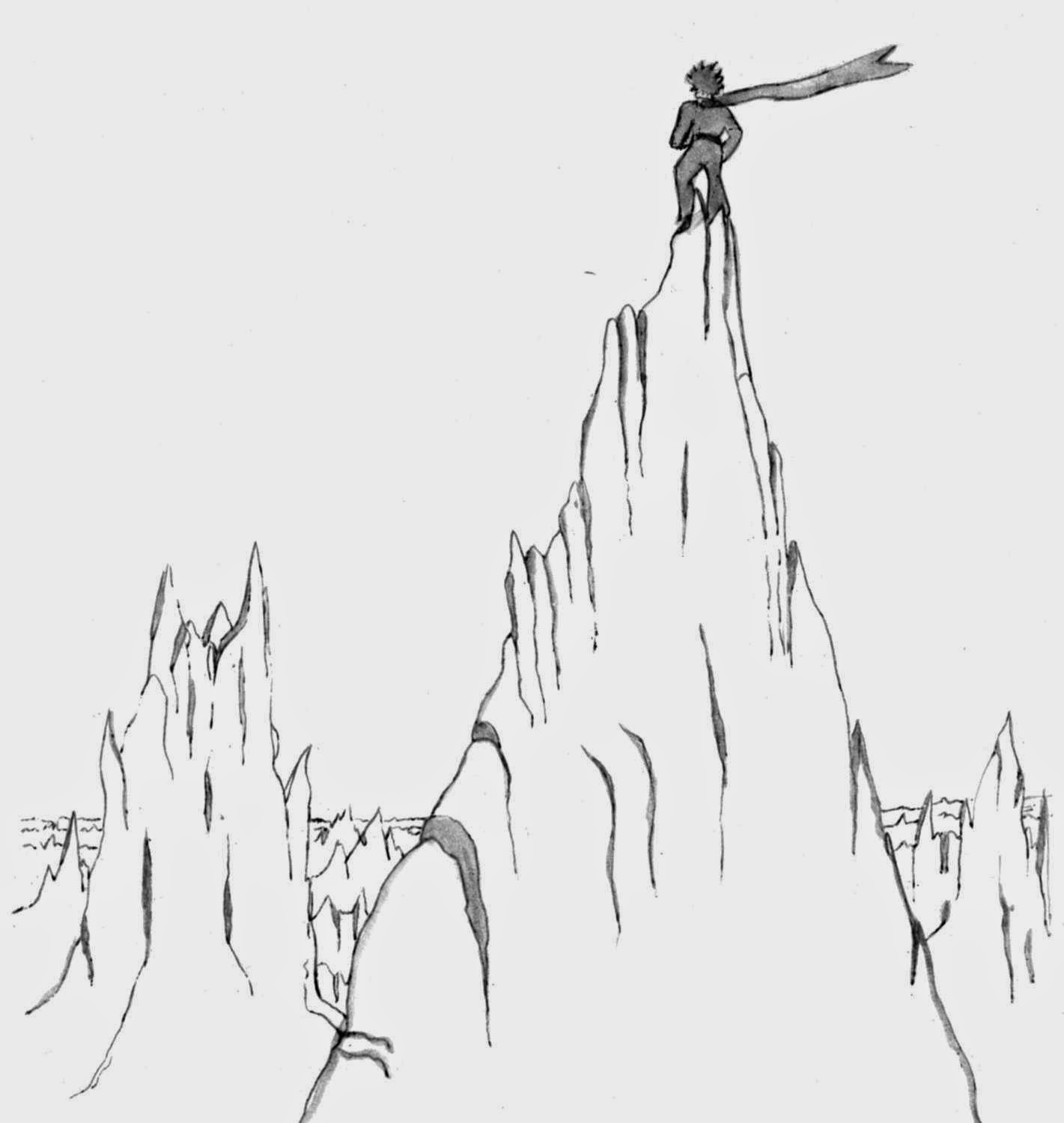Night Flight
Antoine de Saint-Exupery, who is best known for writing the children's book The Little Prince, might have preferred the title aeronaut to author. In the 1930s, he spent a lot of time in - or over - Patagonia, flying mail for the Correo Sur. He drew Patagonia into The Little Prince, and Argentina drew his name onto its maps, naming one of the peaks in the Fitz Roy Range after him:
(The image on the left is from http://ibarrafernandez.blogspot.com.ar/2010/04/antoine-de-saint-exupery-en-la.html; the other is from Le Petit Prince)
This is a beautiful essay from Robert McFarlane on Saint-Exupery as humanist, environmentalist, aeronaut.
Alejo, the new manager of the guest house at Monte Dinero, is also a pilot. When he moved down here two weeks ago from Buenos Aires, he brought a stack of books by Saint-Exupery, and he was nice enough to lend me one, Vuelo Nocturno/Vol de Nuit/Night Flight.
In Daily Themes, we did a week on translation. The syllabus included this quote: Translation is the paradigm, the exemplar of all writing…. It is translation that demonstrates most vividly the yearning for transformation that underlies every act involving speech, that supremely human gift. (Harry Mathews)
To make my brain move, I did a rough translation of a passage I liked from Vuelo Nocturno. I italicized where I added something. I'm including the Spanish at the bottom, which itself is a 1960 translation from the French by J. Benavent:
***
Descending over San Julian, with the plane’s engine running slower, Fabien felt tired. Everything that brightens the life of man was running towards him, getting bigger: the houses, the little cafes, the trees along the avenue. He was like a conqueror who, at the end of his days, starts paying attention to the places he’s collected and discovers the humble happiness of mankind.
Fabien was feeling it would be nice to let down his guard, to allow himself to feel the clumsiness and exhaustion that were seizing him, and to live here like a simple man, who looks out at the same view every day. He would have accepted this little town: after choosing, he thought, you can take in stride the randomness of fate - love it, even. Choosing limits you in the same way love does – it digs you in deeper. Fabien would have liked to live here for a while, to gather here his share of eternity. He’d only be living for a relative hour, but the gardens of these little cities and their old walls, over which he flew, seemed outside of himself, timeless. …And he thought about friendships, girls, a simple white tablecloth - everything that can become timeless, too, when you know it. The little town was slipping as he skimmed over it with his wings, unfurling the mystery of its enclosed gardens, whose walls no longer protected them. But Fabien, after landing, knew that he had only seen the slow movement of a few men among stones. That town, by not moving, kept locked up tight its secrets; that little town rejected his gentleness: to enter it at all would mean renouncing action, standing still.
***
Al descender sobre San Julian, con el motor en retardo, Fabien se sintió cansado. Todo lo que alegra la vida de los hombres corría, agrandándose, hacia el: las casa, los cafetuchos, los arboles de la avenida. El, parecía un conquistador que, en el crepúsculo de sus empresas, se inclina sobre las tierras del imperio y descubre la humilde felicidad de los hombres.
Fabien experimentaba la necesidad de deponer las armas, de sentir la torpeza y el cansancio que le embargaban – ye también se es rico de las propias miserias - y de vivir aquí cual hombre simple, que contempla a través de la ventana una visión ya inmutable. Hubiera aceptado esa aldea minúscula: luego de escoger, so conforma uno con el azar de la propia existencia y incluso puede amarla. Os limita como el amor. Fabien hubiera deseado vivir aquí largo tiempo, recoger aquí su porción de eternidad, pues las pequeñas ciudades, donde vivis una hora y los jardines rodeados de viejos muros, sobre los cuales volaba, le parecían, fuera de el, eternos en duración. La aldea subia hacia la tripulación, abriéndose. Y Fabien pensaba en las amistades, en las jovencitas, en la intimidad de los blancos manteles, en todo lo que, lentamente, se familiariza con la eternidad. La aldea se deslizaba ya rozando las alas, desplegando el misterio de sus jardines cercados, a los que sus muros ya no protegían. Pero Fabien, después de aterrizar, supo que solo había visto el lento movimiento de algunos hombres entre las piedras. Aquella aldea, con su sola inmovilidad, guardaba el secreto de sus pasiones; aquella aldea, denegaba su suavidad: para conquistarla hubiera sido preciso renunciar a la acción.

